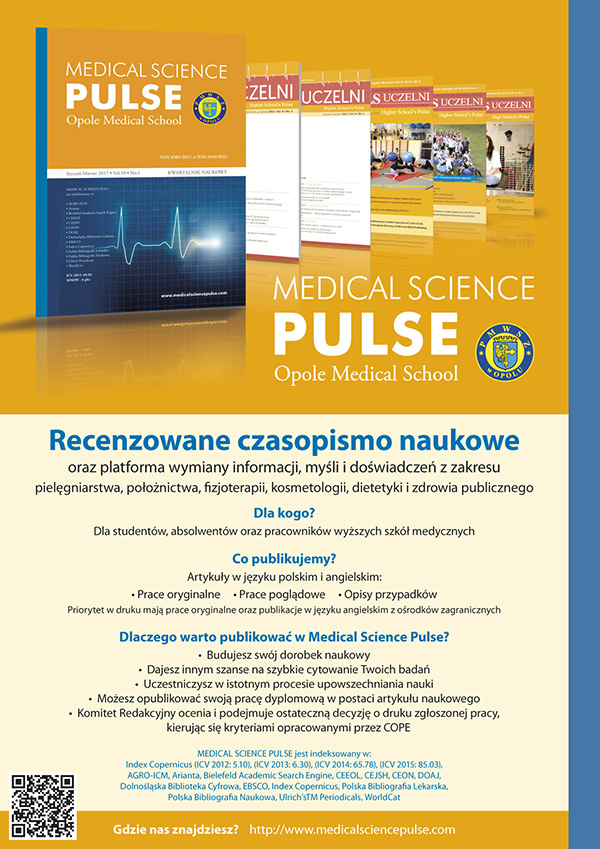The knowledge of students in Opole Medical School on honorary blood donation and transfusion medicine – analysis of own research
The knowledge of students in Opole Medical School on honorary blood donation and transfusion medicine – analysis of own research
Author(s): Sabina Czapla, Joanna Śliwińska, Teresa Niechwiadowicz-CzapkaSubject(s): Health and medicine and law, Welfare services
Published by: Państwowa Medyczna Wyższa Szkoła Zawodowa w Opolu
Keywords: blood donation; students; knowledge
Summary/Abstract: Background: The ultimate purpose of blood donation is to obtain blood from healthy donors for use by thosewho require a blood transfusion. This becomes possible due to a solid base of blood donors. Oftentimes, studentsare recruited as they represent a large potential pool of donors. The results of this survey indicate the areas thatrequire focus in order to promote voluntary blood donation.Aim of the study: To determine the amount of knowledge that Opole Medical School students have concerningblood donation and its treatment.Material and methods: This research was performed using a diagnostic survey method. One hundred OpoleMedical School students anonymously filled out a questionnaire concerning blood donation. Their answers wereanalyzed in an “R” statistic and PSPP program. The answer content was assessed with consideration for collegiatelevel, medical education, potential blood donation, and contact with blood donors.Results: 85% of students think that their knowledge is average. 82% of students reported understanding thatblood donation is non habit- forming, while 65% were aware there is no risk of blood overproduction in the caseof regular donations. Approximately 22% of respondents were aware that blood donation has minimal risk forthe donor, but half of the respondents had an incorrect understanding of donor privileges.Conclusions: Students with medical education, senior level students and those who have contact with honorblood donors, do not have greater knowledge than other respondents. The greatest knowledge of blood donationand transfusion have these students who are actually honor blood donors.
Journal: Medical Science Pulse
- Issue Year: 11/2017
- Issue No: 3
- Page Range: 45-49
- Page Count: 5
- Language: English

